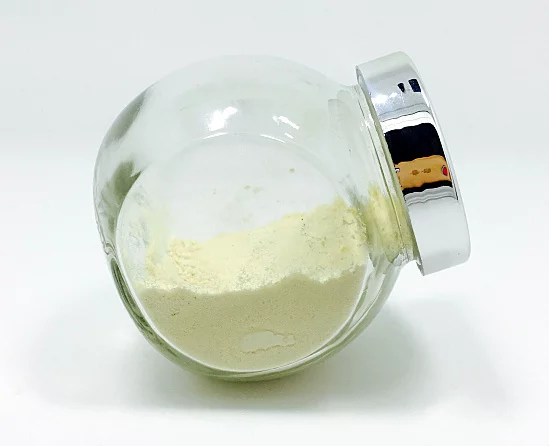 YuYi
YuYi
 Oct 21,2023
Oct 21,2023

Salt stress is one of the main limiting factors affecting efficient crop production. Rapeseed is an important economic crop widely cultivated around the world. Salt stress has seriously affected its yield and quality. In addition, the use of rapeseed to improve saline-alkali soil is also a current research hotspot. Therefore, improving the salt tolerance of rapeseed can not only promote the cultivation of rapeseed in saline-alkali land but also facilitate better saline-alkali land improvement. Nanomaterial seed priming (priming seeds using nanomaterials) has great application potential in improving crop salt tolerance. However, there are still many unknowns about the specific mechanism by which nanomaterial seeds trigger the improvement of crop salt tolerance.
The researchers synthesized polyacrylic acid-modified cerium oxide nanoparticles (PNC) with a low Ce3+/Ce4+ doping ratio. Priming rapeseed seeds with PNC for 8 hours significantly improved the germination rate, fresh weight, and water absorption of rapeseed seeds under salt stress. Under salt stress, priming rapeseed seeds with PNC significantly reduced the active oxygen content (·O2- and H2O2) of rapeseed seedlings 7 days after germination, and increased the antioxidant enzyme activities (SOD, POD, CAT). At the same time, PNC reduced the Na+ content in the shoots and roots of rape seedlings under salt stress, increased the K+ content, and maintained a good Na+/K+ homeostasis. The above results prove that PNC improves the germination ability of rapeseed seeds under salt stress by alleviating oxidative stress and maintaining ion balance.

Alpha-amylase is the key enzyme responsible for starch degradation during seed germination. This study found that PNC significantly increased α-amylase activity during priming of rapeseed seeds under salt stress. The qPCR results showed that PNC upregulated the expression of two genes related to α-amylase (AMY1 and AMY2). These results prove that PNC improves the germination ability of rapeseed seeds under salt stress by regulating their α-amylase activity.
In addition, laser confocal results show that during seed priming, PNC mostly adheres to the surface of the seed coat, and there may also be an interaction between surface PNC and the seed coat of rapeseed, thereby improving its salt tolerance. This study reveals the mechanism of cerium oxide nanoparticle seed priming to improve the salt tolerance of rapeseed from the perspective of active oxygen steady-state balance and α-amylase and provides more theoretical support for research on the mechanism of nanomaterial seed priming to improve crop salt tolerance.
This study further demonstrates the good application potential of plant nanobiotechnology in improving crop stress resistance and also shows that interdisciplinary research may provide new alternative research or technical solutions for studying scientific issues in practical production.

Cerium belongs to the lanthanide series metal, and its oxidation product, cerium oxide, is widely used in building materials, glass, agriculture, automobiles, cosmetics, and other fields. Cerium oxide has excellent protection against UVB, UVA, and high-energy short-wave blue light, but it is extremely difficult to dissolve in water, which limits its application in the field of cosmetics.Yuyi Technology adopts special processing technology for cerium oxide through independent research and development, achieving one-time molding of cerium oxide and reaching the nanometer level.
